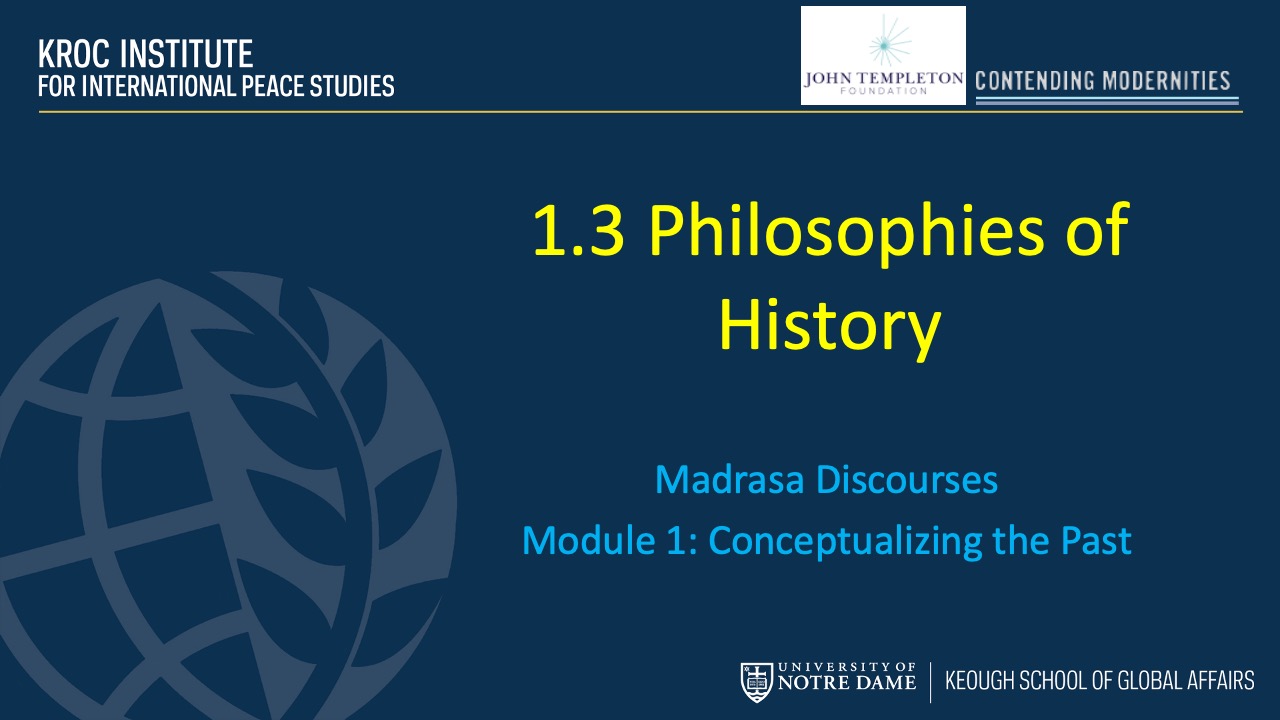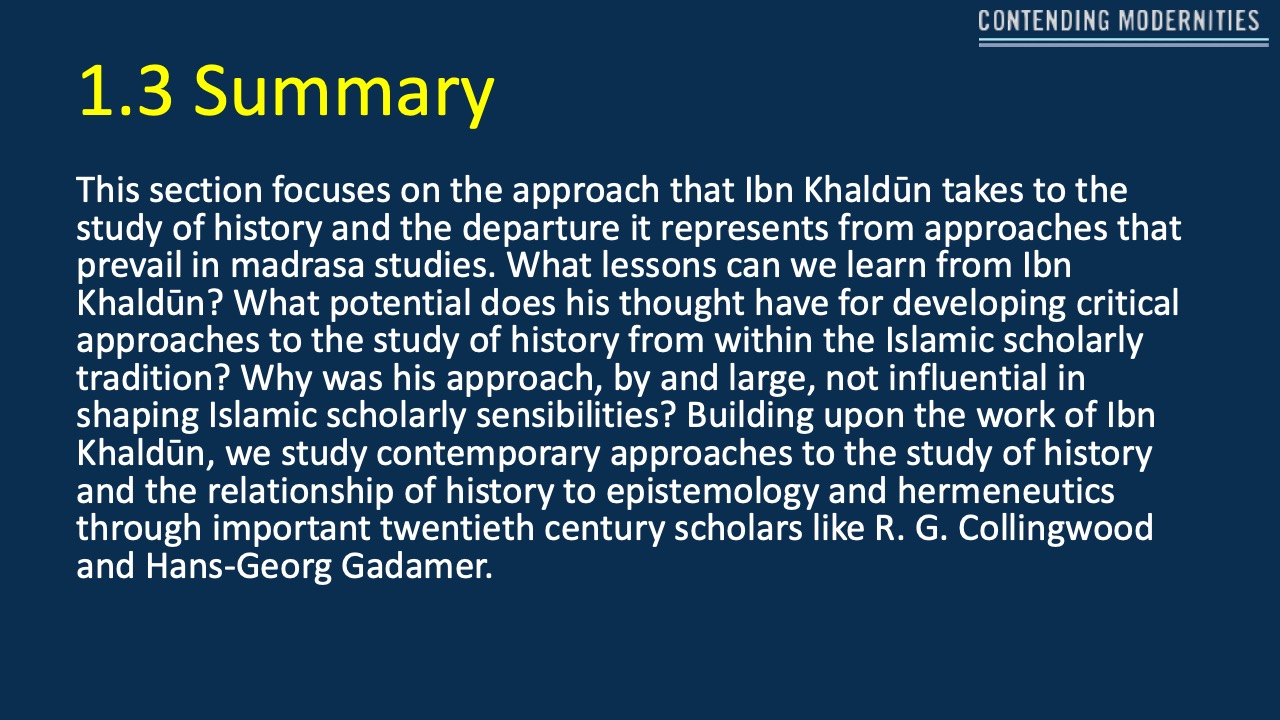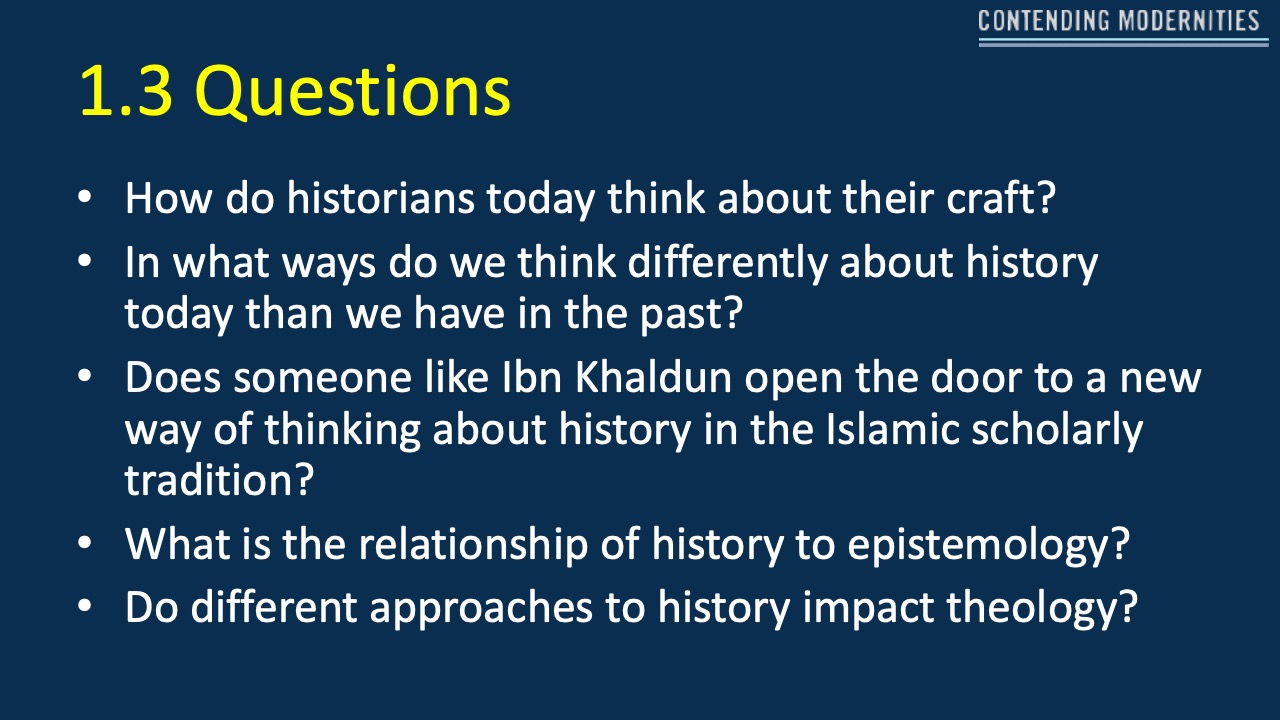What sources shape our understanding of history? What is included, and what is left out? Do present day perspectives shift our view of historical events? What does this tell us about society and what we value?
Ibn Khaldun (d. 1406), a North African Muslim scholar and pioneer in the fields of historiography and sociology, introduced a novel approach to the study of the past. Ibn Khaldun looked to multiple sources of reason to explain history, and assessed patterns to understand the nature of creation and society. Ibn Khaldun’s theories about how we understand the past and what it can tell us about the future open the door for contemporary studies about how our view of history impacts our theory of knowledge (epistemology) and the practice of interpretation (hermeneutics).
Key Terms:
- Hermeneutics
Thumbnail: Gate in Fez, Morocco. Photo Credit: Scott Koch, 2007. CC BY-NC-ND 2.0.
Learning Materials:
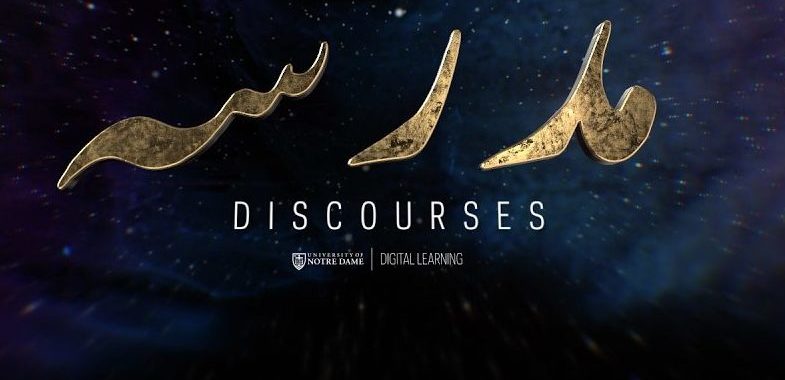
1.3.1 Philosophies of History Video
In this interview, Madrasa Discourses faculty discuss Ibn Khaldun and the development of the study of history.
Read More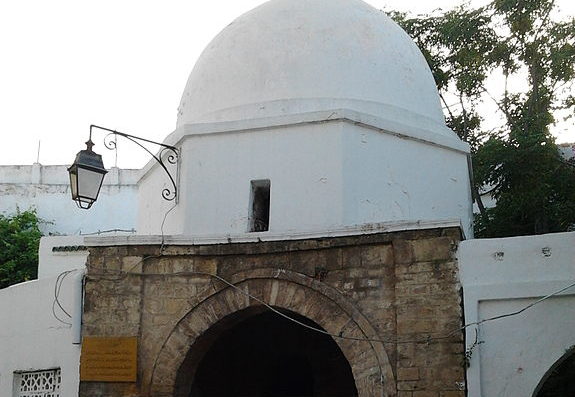
1.3.2 Ibn Khaldun and the Philosophy of History
Ibn Khaldun pioneered a new way of looking at history. (Wael Ghabara/"Tunis Mosque")
Read More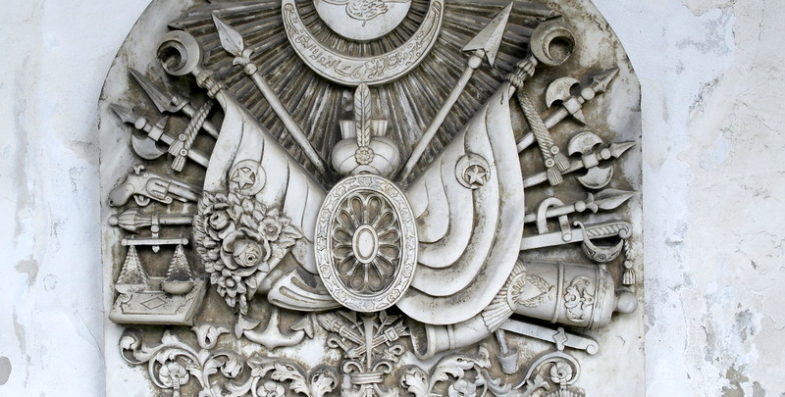
1.3.3 Thinking Like a Historian
History combines the crafts of storytellers, social scientists, and lawyers. (PhotoLanda/"Coat of arms of the Ottoman Empire")
Read More
1.3.4 The Imagination in Historical Studies
Does imagination have a place in the study of history? (Thomas Hawk/"Imagination")
Read More
1.3.5 Hermeneutics and the Philosophy of History
How has the study of interpretation helped other religions engage with modernity? (Kevin Schoenmakers/"Golden")
Read More
1.3.6 The Reliability of Historical Science
How do historical ways of knowing relate to other sciences? (Roderick Eime/"Silversea Silver Explorer")
Read More
1.3.7 Ibn Khaldūn, Muqaddima
Ibn Khaldūn, Muqaddima. (amanda tipton/"it's in a book")
Read More

